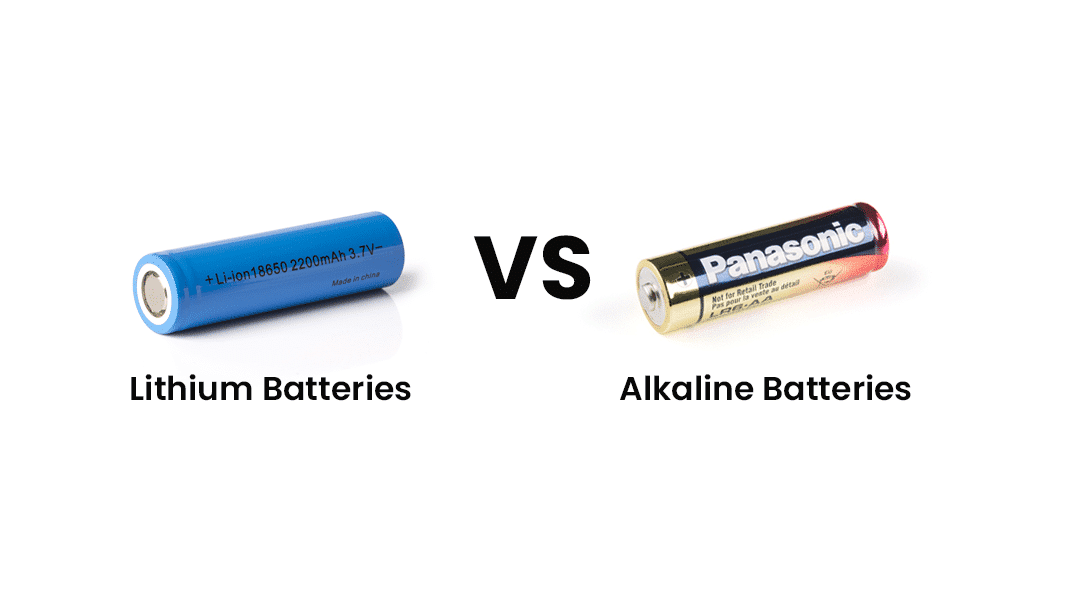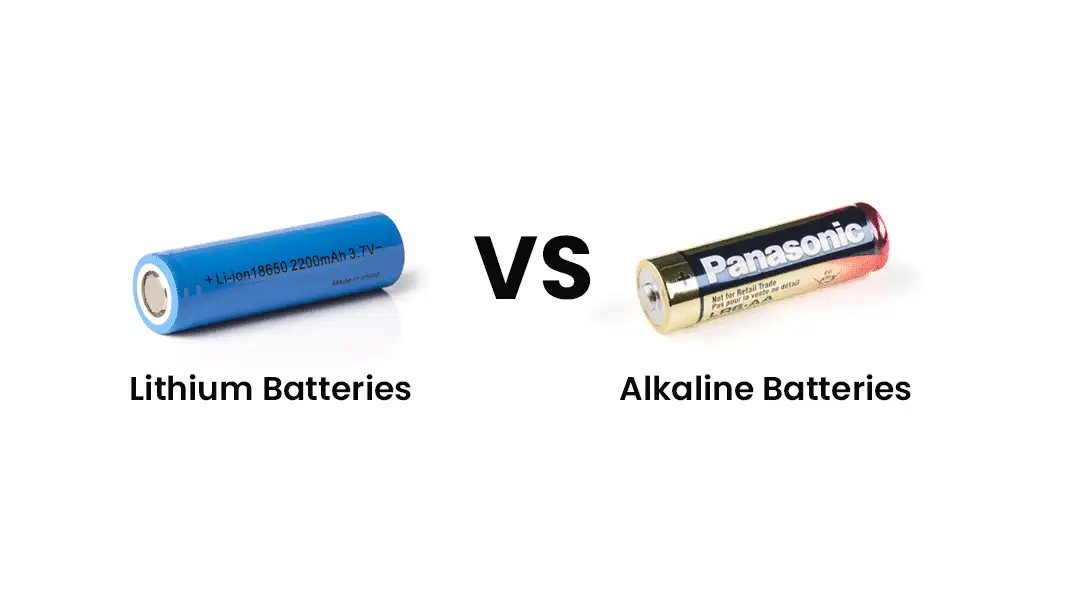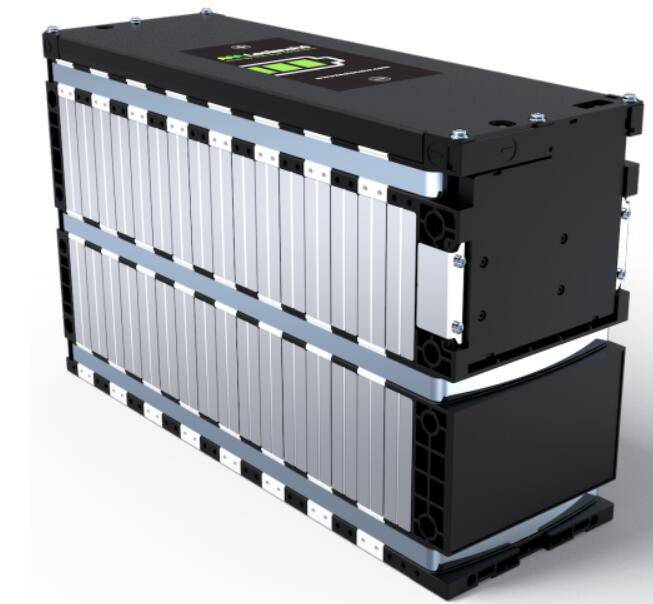Batteries are essential for powering everyday devices, with lithium and alkaline batteries being the most common types. While alkaline batteries are cost-effective for low-drain devices, lithium batteries offer superior performance, longevity, and energy density, making them ideal for high-drain applications.
What Are Alkaline Batteries and How Do They Work?
Alkaline batteries are a type of primary battery that utilize a chemical reaction between zinc and manganese dioxide in an alkaline electrolyte, typically potassium hydroxide. This reaction generates a nominal voltage of 1.5 volts per cell. Commonly used in household items like remote controls, toys, and flashlights, alkaline batteries are known for their reliability and affordability.Key Features of Alkaline Batteries:
- Voltage: 1.5 volts per cell.
- Capacity: Typically ranges from 1700 to 3000 mAh for AA batteries.
- Shelf Life: Generally lasts about 5 to 10 years.
Chart: Common Uses of Alkaline Batteries
| Device Type | Typical Usage |
|---|---|
| Remote Controls | Daily use |
| Flashlights | Occasional use |
| Toys | Frequent use |
What Are Lithium Batteries and How Do They Work?
Lithium batteries, particularly lithium-ion batteries, are rechargeable power sources widely used in modern electronics such as smartphones, laptops, and electric vehicles. They operate on the principle of lithium ions moving between positive and negative electrodes during discharge and charging cycles. These batteries typically provide a higher voltage (around 3.7 volts) and boast greater energy density compared to alkaline batteries.Key Features of Lithium Batteries:
- Voltage: Typically around 3.7 volts per cell.
- Capacity: Ranges from 1800 mAh to over 3500 mAh depending on design.
- Shelf Life: Can last up to 12 years or more when stored properly.
Chart: Performance Comparison of Battery Types
| Feature | Alkaline | Lithium |
|---|---|---|
| Voltage | 1.5 V | 3.7 V |
| Capacity | Up to 3000 mAh | Up to 3500+ mAh |
| Lifespan | 5 – 10 years | Up to 12 years |
How Do Alkaline and Lithium Batteries Differ in Performance?
The performance differences between alkaline and lithium batteries are significant:
- Energy Density: Lithium batteries have a much higher energy density, meaning they can store more energy in a smaller volume.
- Discharge Rate: Lithium batteries maintain a consistent voltage throughout their discharge cycle, while alkaline batteries experience a gradual decline.
- Rechargeability: Most lithium batteries are rechargeable, allowing for thousands of cycles, whereas alkaline batteries are typically single-use.
Why Is Lifespan Important in Battery Selection?
Lifespan is crucial when selecting a battery type as it impacts both performance and cost-effectiveness. Lithium batteries often last longer than alkaline batteries due to their ability to withstand more charge cycles without significant degradation. This longevity makes them more suitable for high-drain devices where frequent replacements would be impractical.
How Do Cost and Value Compare Between Battery Types?
While alkaline batteries are generally cheaper upfront, their shorter lifespan can lead to higher long-term costs if used in high-drain applications. In contrast, although lithium batteries have a higher initial price, their longevity and efficiency can make them more cost-effective over time.Cost Comparison Chart
| Battery Type | Average Cost per Unit | Estimated Lifespan |
|---|---|---|
| Alkaline | $0.50 – $1.00 | 5 – 10 years |
| Lithium | $2.00 – $5.00 | Up to 12 years |
What Are the Environmental Impacts of Each Battery Type?
The environmental impact of battery production and disposal varies significantly between alkaline and lithium batteries:
- Alkaline Batteries: Generally have a lower carbon footprint during production but can contribute to landfill waste if not disposed of properly.
- Lithium Batteries: While they offer better recycling options, the extraction process for lithium can be environmentally taxing due to its energy-intensive nature.
When Should You Use Alkaline vs. Lithium Batteries?
Choosing between alkaline and lithium batteries depends on the device’s power requirements:
- Use Alkaline Batteries For:
- Low-drain devices (e.g., remote controls)
- Occasional use items (e.g., clocks)
- Use Lithium Batteries For:
- High-drain devices (e.g., smartphones)
- Frequent use applications (e.g., digital cameras)
Latest News on Battery Technology
Recent advancements in battery technology focus on enhancing sustainability and performance. Researchers are exploring new materials that could reduce the environmental impact of lithium extraction while improving recycling methods for both battery types. Innovations in solid-state battery technology also promise increased safety and efficiency, potentially revolutionizing how we power our devices.
FAQ about Lithium and Alkaline Batteries
Q: Which battery lasts longer?
A: Lithium batteries typically last longer than alkaline batteries due to their higher energy density and rechargeability.Q: Can I recharge alkaline batteries?
A: Most alkaline batteries are not designed for recharging; however, some rechargeable versions exist but are less common.Q: Why do lithium batteries cost more?
A: The higher cost is due to advanced materials and manufacturing processes that enhance performance and longevity.Q: Are there any safety concerns with lithium batteries?
A: Yes, lithium batteries can pose safety risks if damaged or improperly charged; however, modern designs include safeguards against such issues.
Editor Comment
“In the evolving landscape of battery technology, understanding the differences between lithium and alkaline options is crucial for consumers looking to maximize efficiency while minimizing environmental impact,” says an industry expert. “As technology advances, we may see even more innovative solutions that balance performance with sustainability.”










